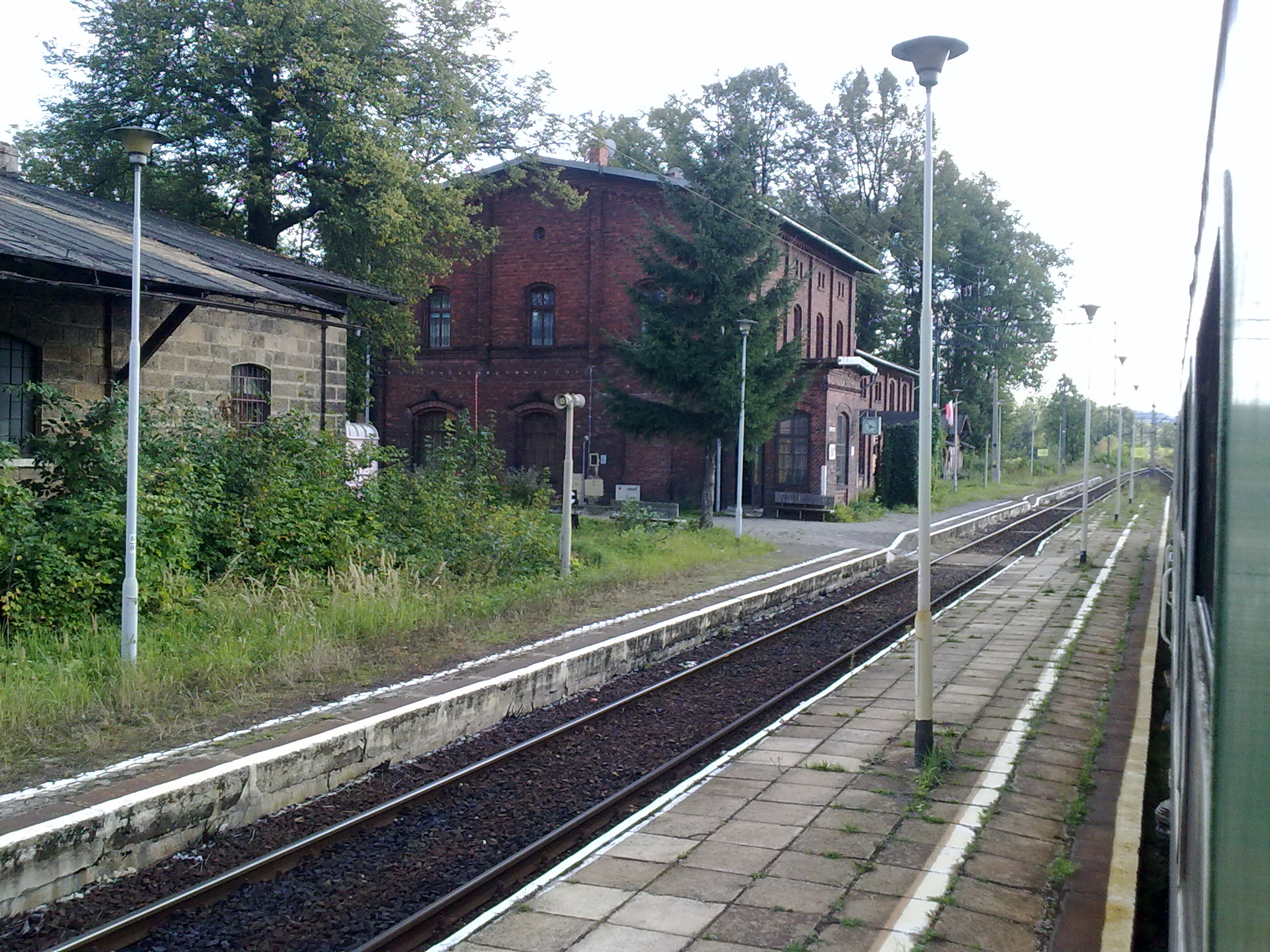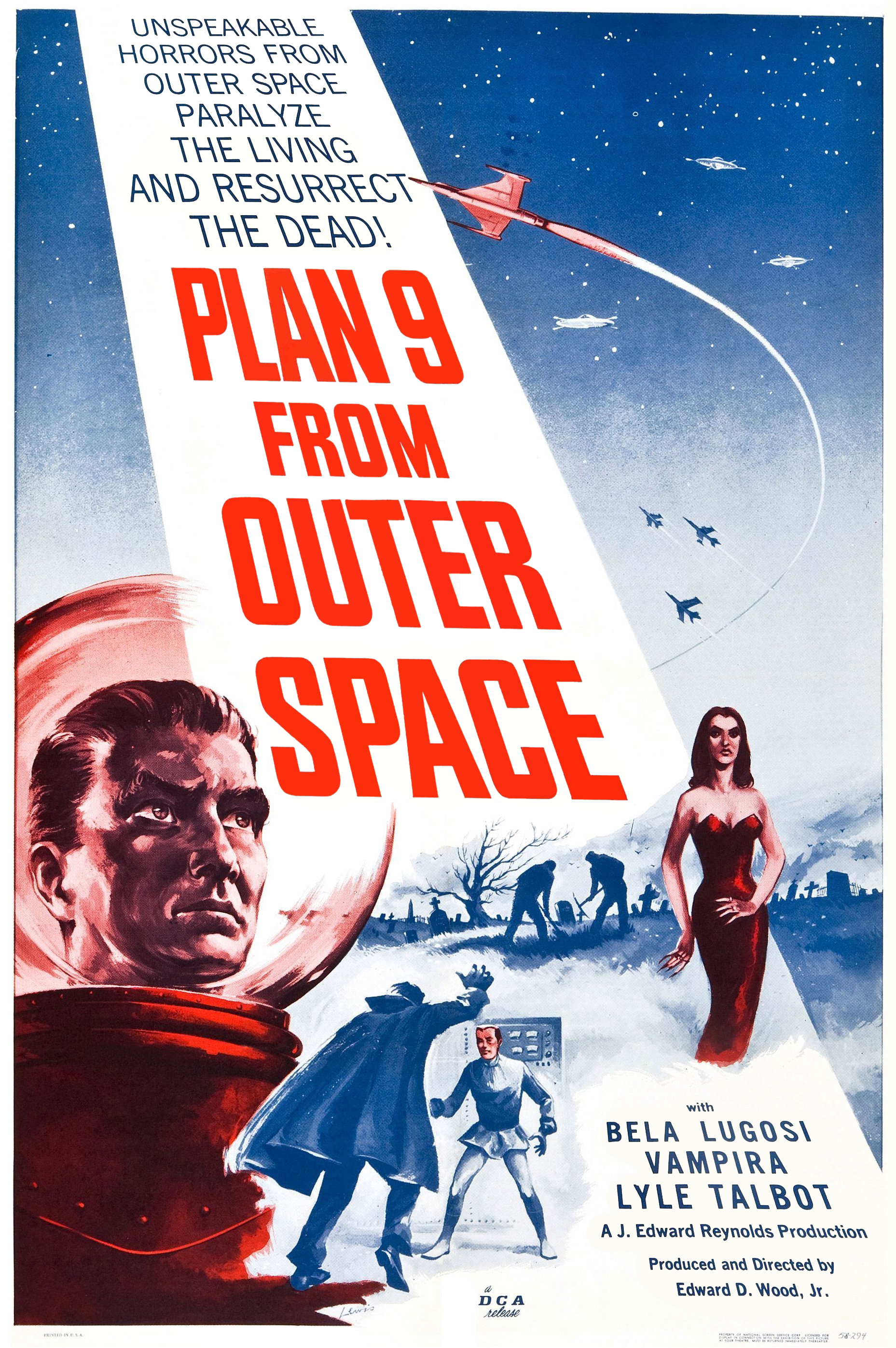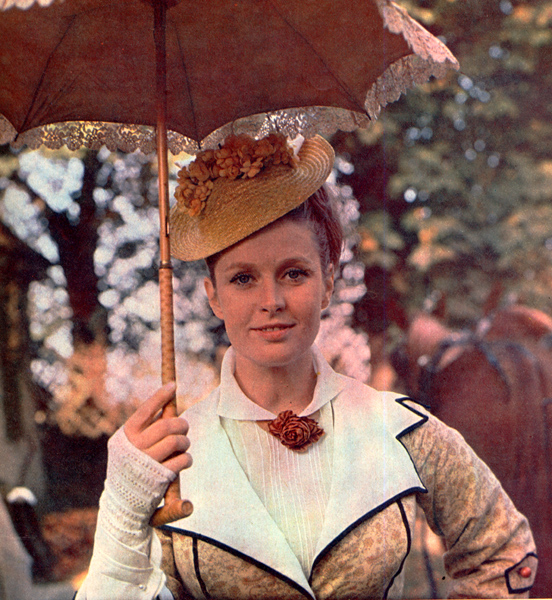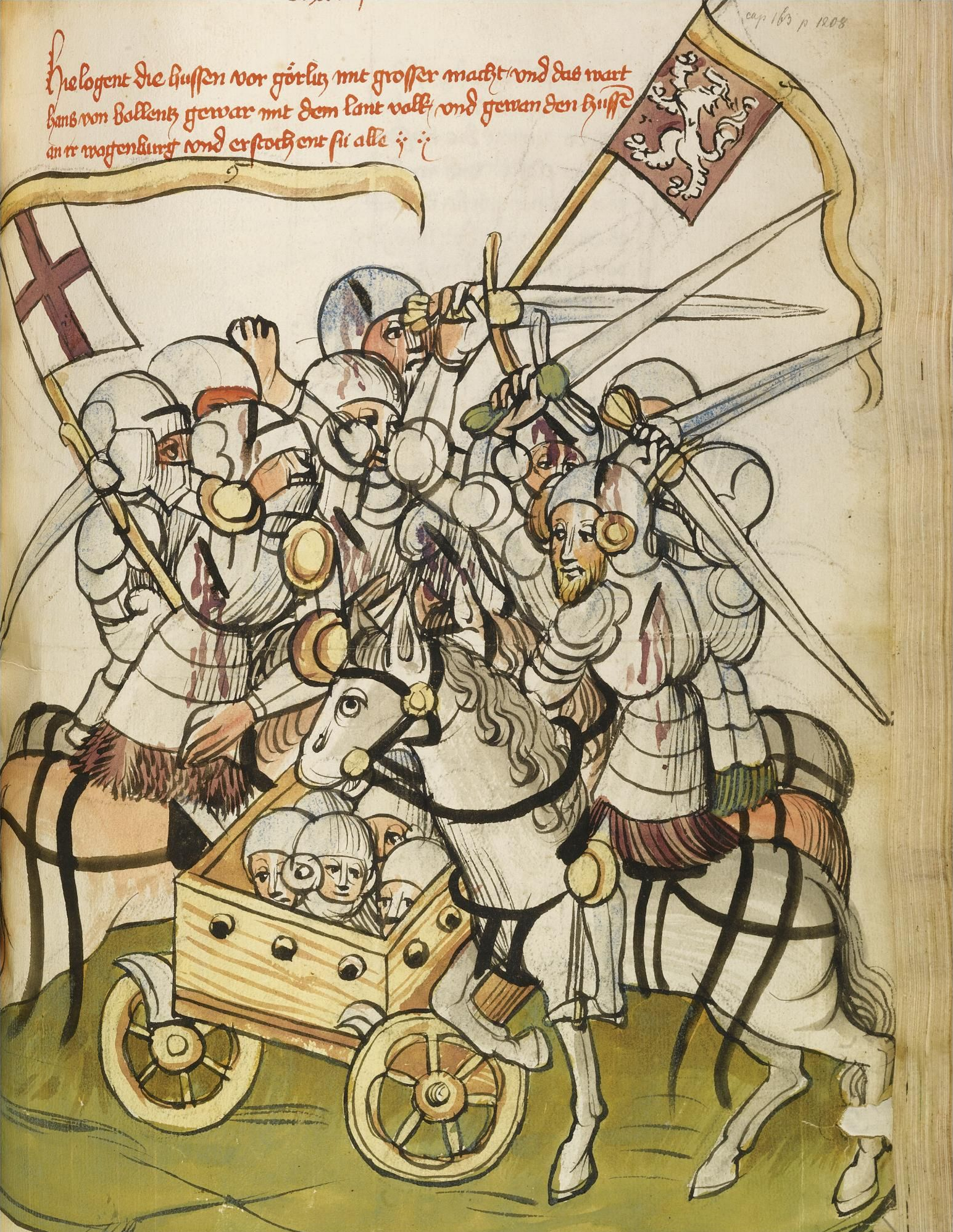|
Nikt Nie Woła
''Nikt nie woła'' (''Nobody's Calling'') is a Polish black-and-white narrative film from 1960, directed by Kazimierz Kutz, loosely based on the novel of the same title by Józef Hen. The film tells the post-war story of a deserter from the anti-communist underground (played by ) who tries to settle in a former German town and becomes infatuated with one of the local women (played by ). While making significant changes to Hen's novel, Kutz, together with cinematographer Jerzy Wójcik (cinematographer), Jerzy Wójcik, also experimented with form, giving the film a painterly, artistic quality. Initially dismissed by critics, ''Nikt nie woła'' later gained recognition as one of Kutz's most important works, and it was seen as a creative dialogue with Andrzej Wajda's film ''Ashes and Diamonds (film), Ashes and Diamonds'' (1958). At times, ''Nikt nie woła'' was compared to the films of Michelangelo Antonioni, with some critics noting the film's pioneering qualities, anticipating the I ... [...More Info...] [...Related Items...] OR: [Wikipedia] [Google] [Baidu] |
Bystrzyca Kłodzka
Bystrzyca Kłodzka (, ) is a historic town in Kłodzko County, in Lower Silesian Voivodeship in southwestern Poland. It is the administrative seat of Gmina Bystrzyca Kłodzka. As of December 2021, the town has a population of 9,773. The old town of Bystrzyca is famous for its many historical buildings and is a popular Tourism, tourist destination. Geography Bystrzyca Kłodzka lies in the Kłodzko Valley near the confluence of the Eastern Neisse (''Nysa Kłodzka'') and Bystrzyca Łomnicka rivers, at the feet of the Bystrzyckie Mountains, a range of the Central Sudetes. Part of the Kłodzko Land historical region, it is located about south of Kłodzko. History The area of today's Bystrzyca Kłodzka has been inhabited at least for six millennia. During the times of the Roman Empire the Celts established numerous permanent settlements in the area of Kłodzko along the ancient Amber Road. There are also numerous archaeological excavations of Lusatian culture remnants in the area. M ... [...More Info...] [...Related Items...] OR: [Wikipedia] [Google] [Baidu] |
Ryszard Pietruski
Ryszard Pietruski (born 7 October 1922 in Wyszecino near Wejherowo, died 14 September 1996 in Warsaw) was a Polish theatre and film actor. Biography He spent his childhood and early days in Lviv. He was a student of the III State High School and Gymnasium in the name of King Stefan Batory in Lviv (in Polish ''Państwowego III Gimnazjum Męskiego im. Króla Stefana Batorego''). During the war he worked in Lviv as a waiter in a restaurant. In 1944, after the second occupation of Lviv by the Red Army, he joined the Polish Army and fought as a soldier in the 4th Infantry Division. He participated in the liberation of Warsaw and in the battle of Kolobrzeg, among other events. Some biographical notes indicate that he also took part in the Battle of Lenino, although it is doubtful, given that the battle of Lenino took place in October 1943, and Ryszard Pietruski began service in LWP only in 1944. In 1948 he passed his acting exams. Between 1978 and 1988 he was a director of the Warsa ... [...More Info...] [...Related Items...] OR: [Wikipedia] [Google] [Baidu] |
Tadeusz Lubelski
Tadeusz Lubelski (born 1 July 1949) is a Polish film historian, theorist and critic specializing in Polish and French cinema, translator, professor of the humanities, member of the European Film Academy. A film academic, he was associated with the University of Silesia and with the Jagiellonian University respectively. He was the director of the Institute of the Audio-Visual Arts of the Jagiellonian University (2008–2012). He also taught Polish language at Sorbonne (1989–1993). He authored and edited a number of books, including the first Polish thematic ''Encyklopedia kina'' (Encyclopedia of the Cinema) and the comprehensive series ''Historia kina'' (The History of Cinema). Since 1994, he has been the deputy editor-in-chief of the ''Kino'' monthly. Between 1995 and 2001, he has been the Programme Director of the Kraków Film Festival. Biography He was born in a family originating in Lviv. In 1971 he graduated in Polish studies from the Jagiellonian University. He worked ... [...More Info...] [...Related Items...] OR: [Wikipedia] [Google] [Baidu] |
Cult Film
A cult film, also commonly referred to as a cult classic, is a film that has acquired a cult following. Cult films are known for their dedicated, passionate fanbase, which forms an elaborate subculture, members of which engage in repeated viewings, dialogue-quoting, and audience participation. Inclusive definitions allow for major studio productions, especially box-office bombs, while exclusive definitions focus more on obscure, transgressive films shunned by the mainstream. The difficulty in defining the term and subjectivity of what qualifies as a cult film mirror classificatory disputes about art. The term ''cult film'' itself was first used in the 1970s to describe the culture that surrounded underground films and midnight movies, though ''cult'' was in common use in film analysis for decades prior to that. Cult films trace their origin back to controversial and suppressed films kept alive by dedicated fans. In some cases, reclaimed or rediscovered films have acq ... [...More Info...] [...Related Items...] OR: [Wikipedia] [Google] [Baidu] |
Politburo Of The Polish United Workers' Party
The Politburo was the highest political organ of the Central Committee of the Polish United Workers' Party, which existed from 1948 to 1990. The Politburo typically had between 9 and 15 members at any one time. Usually, several alternates (or candidates) were also elected to the Politburo, but unlike members, alternates did not possess voting rights. The predecessor of the PUWP was the Polish Workers' Party (). In 1948, it merged with the Polish Socialist Party to form the PUWP. A chronological list of Politburo membership is provided below. Politburo of the Polish Workers' Party, 1944–1948 Politburo of the Polish United Workers Party, 1948-1990 (A) = Alternate (Candidate) Member References {{Reflist Politburo of the Polish United Workers' Party Polish politicians Polish United Workers' Party Polish United Workers' Party ... [...More Info...] [...Related Items...] OR: [Wikipedia] [Google] [Baidu] |
Bystrzyca Klodzka Przedmiescie Station - Panoramio
Bystrzyca may refer to: Rivers *Bystrzyca (Odra), a tributary of the Oder *, a tributary of the Tyśmienica * Bystrzyca Dusznicka, a tributary of the Nysa Kłodzka *Bystrzyca Łomnicka, a tributary of the Nysa Kłodzka *Bystrytsia River, a river in modern Ukraine Towns and villages *Bystrzyca Kłodzka, a town in Lower Silesian Voivodeship (south-west Poland) *Bystrzyca, Lwówek Śląski County in Lower Silesian Voivodeship (south-west Poland) *Bystrzyca, Oława County in Lower Silesian Voivodeship (south-west Poland) * Bystrzyca, Kuyavian-Pomeranian Voivodeship (north-central Poland) * Bystrzyca, Kraśnik County in Lublin Voivodeship (east Poland) * Bystrzyca, Lublin County in Lublin Voivodeship (east Poland) *Bystrzyca, Łuków County in Lublin Voivodeship (east Poland) * Bystrzyca, Subcarpathian Voivodeship (south-east Poland) * Bystrzyca, Gniezno County in Greater Poland Voivodeship (west-central Poland) * Bystrzyca, Konin County in Greater Poland Voivodeship (west-central P ... [...More Info...] [...Related Items...] OR: [Wikipedia] [Google] [Baidu] |
Elżbieta Czyżewska
Elżbieta Justyna Czyżewska (May 14, 1938 – June 17, 2010) was a Polish actress active in both Poland and the United States. She began her career in Poland before moving to New York City in the 1960s. She gained critical acclaim in the early 1960s that culminated in breakthrough performances in '' The Saragossa Manuscript'' (1964, dir. Wojciech Jerzy Has), ''Marriage of Convenience'' (1966, dir. Stanisław Bareja) and '' Everything for Sale'' (1969, dir. Andrzej Wajda). Czyżewska received the Obie Award for Distinguished Performance by an Actress in 1990 for ''Crowbar''. Early life Czyżewska was born in Warsaw in 1938. She attended the State Academy of Theatre in Warsaw and was advised by the dean that in order to play leading roles in romantic repertory theater, she should undergo plastic surgery to reduce the size of her breasts. She refused after consulting with her colleagues in the anti-establishment Student Satirical Theatre. Her first marriage was to film directo ... [...More Info...] [...Related Items...] OR: [Wikipedia] [Google] [Baidu] |
Beata Tyszkiewicz
Beata Maria Helena Tyszkiewicz (born 14 August 1938) is a retired Polish people, Polish actress and TV personality. Career Beata Tyszkiewicz has worked mostly on the big screen but acted in several French TV movies, becoming famous through her portrayal of distinguished ladies in costume dramas like ''The Doll (1968 film), The Doll'' by Wojciech Has and ''The Ashes (film), The Ashes'' by Andrzej Wajda. She has worked with leading directors such as Agnieszka Holland, Krzysztof Zanussi, André Delvaux and former husband Andrzej Wajda. Tyszkiewicz has appeared in more than a hundred films. Her debut was in ''Zemsta'' in 1956. In 1968 she was cast in ''The Doll (1968 film), The Doll'', directed by Wojciech Has. ''The Doll'' was adapted from the Polish novel, ''Lalka'' by Boleslaw Prus. In 1971 she was a member of the jury at the 7th Moscow International Film Festival. In 1995 she was awarded with an Honorable Diploma at the 19th Moscow International Film Festival. In 1997 she was a ... [...More Info...] [...Related Items...] OR: [Wikipedia] [Google] [Baidu] |
AST National Academy Of Theatre Arts In Kraków
AST National Academy of Theatre Arts (Polish language, Polish: ''Akademia Sztuk Teatralnych w Krakowie'', often shortened to AST), is a drama school based in Kraków and Wrocław, Poland. It was founded in 1946 by actor Juliusz Osterwa, who took the initial steps leading to the establishment of the Academy through the amalgamation of three local studios; Stary Teatr, the Słowacki Theatre, and Iwo Gall's Dramatic Studio. __TOC__ History The history of the Ludwik Solski Academy began in 1946 with a three-year training course in drama for prospective actors. In 1949 the name of the school was changed to the State College of Acting (''Państwowa Wyższa Szkoła Aktorska''), and the curriculum extended to four years. Its current name, the Państwowa Wyższa Szkoła Teatralna, was determined in 1955. From 1954 to 1964 the college also provided courses in puppetry and the puppet theatre, reactivated in 1972 as an independent Puppet Theatre Faculty located in the city of Wrocław. The n ... [...More Info...] [...Related Items...] OR: [Wikipedia] [Google] [Baidu] |
Stendhal
Marie-Henri Beyle (; 23 January 1783 – 23 March 1842), better known by his pen name Stendhal (, , ), was a French writer. Best known for the novels ''Le Rouge et le Noir'' ('' The Red and the Black'', 1830) and ''La Chartreuse de Parme'' ('' The Charterhouse of Parma'', 1839), he is highly regarded for the acute analysis of his characters' psychology and considered one of the early and foremost practitioners of realism. A self-proclaimed egotist, the neologism for the same characteristic in his characters was "Beylism". Life Marie-Henri Beyle was born in Grenoble, Isère, on 23 January 1783, into the family of the advocate and landowner Chérubin Beyle and his wife Henriette Gagnon. He was an unhappy child, disliking his "unimaginative" father and mourning his mother, whom he loved fervently, and who died in childbirth in 1790, when he was seven. He spent his childhood at the Beyle country house in Claix near Grenoble. His closest friend was his younger sister, Pauline, with ... [...More Info...] [...Related Items...] OR: [Wikipedia] [Google] [Baidu] |
Wojciech Has
Wojciech Jerzy Has (1 April 1925 – 3 October 2000) was a Polish film director, screenwriter and film producer. Early life and studies Wojciech Jerzy Has was born in Kraków. Has himself was agnostic. However, his family on both sides was Roman Catholic, although he was a philosemite. He had Jewish roots on his father's side, and Roman Catholic on his mother's. The name ''Has'' is the Hollandic, Yiddish and Germanised Jewish surname ''Haas'' (האָז), meaning ''hare'' in English. During the wartime German occupation of Poland, Has studied at the Kraków Business and Commerce College and later clandestine underground classes at the Kraków Academy of Fine Arts – until it was disbanded in 1943. When the war ended, he went on to study at the reconstituted Academy of Fine Arts in Kraków. In 1946, Has completed a one-year course in film and began producing educational and documentary films at the Warsaw Documentary Film Studio, and in the 1950s moved on to work at Polan ... [...More Info...] [...Related Items...] OR: [Wikipedia] [Google] [Baidu] |
Hussites
upright=1.2, Battle between Hussites (left) and Crusades#Campaigns against heretics and schismatics, Catholic crusaders in the 15th century upright=1.2, The Lands of the Bohemian Crown during the Hussite Wars. The movement began during the Prague.html" ;"title="Renaissance in Prague">Renaissance in Prague and quickly spread south and then through the rest of the Kingdom of Bohemia. Eventually, it expanded into the remaining domains of the Bohemian Crown as well. The Hussites (Czech: ''Husité'' or ''Kališníci'', "Chalice People"; Latin: ''Hussitae'') were a Czech Proto-Protestantism, proto-Protestant Christian movement influenced by both the Byzantine Rite and John Wycliffe that followed the teachings of reformer Jan Hus (fl. 1401–1415), a part of the Bohemian Reformation. The Czech lands had originally been Christianized by Byzantine Greek missionaries Saints Cyril and Methodius, who introduced the Byzantine Rite in the Old Church Slavonic liturgical language and the B ... [...More Info...] [...Related Items...] OR: [Wikipedia] [Google] [Baidu] |




